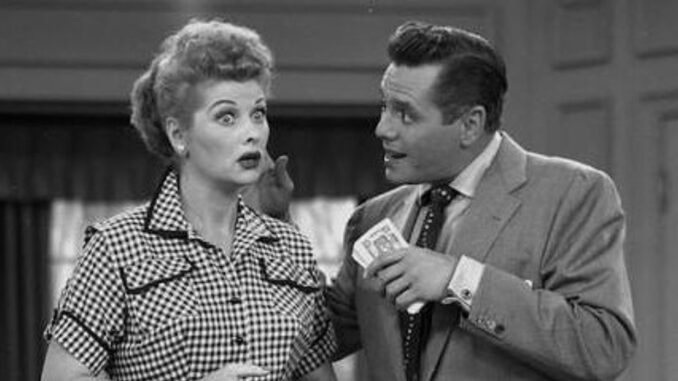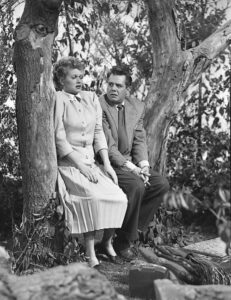
Introduction
When we think of I Love Lucy, we picture slapstick comedy, iconic redhead Lucy Ricardo, and her mischievous schemes to break into showbiz. But underneath all the humor, Lucy and Ricky’s relationship showcased dynamics that feel incredibly dated by today’s standards. What seemed normal in the 1950s would raise plenty of eyebrows in our more progressive, equality-driven society.
Let’s dig deep into 15 aspects of Lucy and Ricky’s relationship that would never fly today. From rigid gender roles to questionable power dynamics, this exploration might make you rethink how far we’ve come.
1. Ricky’s Strict Financial Control Over Lucy
In almost every episode, Ricky tightly controlled the family finances, often treating Lucy like a child when it came to money. Today, this would be considered financial abuse or, at the very least, an unhealthy power dynamic in a marriage.
2. Lucy’s Constant Deception to Get What She Wanted
Lucy often resorted to elaborate schemes and outright lying to pursue her dreams or desires because Ricky wouldn’t allow her to do so otherwise. Modern audiences might question why she felt she couldn’t just communicate openly with her husband.
3. Ricky’s Temper and Belittling Behavior
Ricky frequently yelled at Lucy and called her names in response to her antics. While this was played for laughs, it reflected a normalization of verbal aggression that would be heavily criticized today.
4. The Lack of Partnership in Their Marriage
Ricky was the breadwinner, and Lucy was expected to stay home, handle domestic duties, and support his career. In the 21st century, marriages thrive on partnership and shared responsibilities, which this setup starkly lacked.
5. Ricky’s Old-Fashioned Views on Gender Roles
Ricky often dismissed Lucy’s aspirations and insisted that a woman’s place was in the home. This mindset feels like a relic of a bygone era when women were denied opportunities to pursue their ambitions.
6. Lucy’s Infantilization in Their Relationship
Lucy was often treated as an overgrown child who couldn’t make her own decisions, whether it was about money, social events, or her career. Modern audiences would call out this patronizing dynamic in a heartbeat.

7. The Frequent Threat of Spanking
Ricky’s frequent jokes about “spanking” Lucy as punishment were seen as playful in the 1950s. Today, such behavior would be considered degrading and inappropriate in a marriage.
8. Lucy’s Lack of Autonomy
Lucy had to seek Ricky’s permission for almost everything, from spending money to participating in events. In today’s world, this level of control would be unacceptable in a healthy relationship.
9. Ricky’s Public Embarrassment of Lucy
Whenever Lucy’s schemes backfired, Ricky would often berate her in front of others, including their friends Fred and Ethel. Public shaming isn’t considered acceptable behavior in modern relationships.
10. The Stereotypical ‘Nagging Wife’ Trope
Lucy was often portrayed as the stereotypical nagging wife, a trope that has thankfully diminished in modern media. Today, this characterization feels reductive and outdated.
11. Ricky’s Cultural Stereotypes
While Desi Arnaz broke barriers as a Cuban-American actor, Ricky’s character occasionally leaned into stereotypical portrayals of Latin temper and machismo. These moments would likely be criticized for perpetuating cultural stereotypes.
12. The Lack of Genuine Emotional Intimacy
While Lucy and Ricky shared a comedic dynamic, their relationship lacked the emotional depth and mutual respect often highlighted in modern portrayals of couples.
13. Lucy’s Unfulfilled Career Aspirations
Lucy’s dream of entering showbiz was a running gag, but Ricky never supported her ambitions. Today, a supportive partnership is seen as essential for a thriving relationship.
14. The Acceptance of Jealousy as Normal
Ricky’s jealousy was often exaggerated for comedic effect, but the idea of controlling your partner out of possessiveness feels unhealthy and outdated in modern relationships.
15. The Dismissal of Lucy’s Intelligence
Lucy’s intelligence and resourcefulness were often overlooked, with Ricky and others treating her as ditzy or clueless. Today, audiences value portrayals that celebrate women’s intellect and agency.
Conclusion
Looking back at I Love Lucy, it’s clear that while the show brought laughter and joy to millions, it also reflected the societal norms of a time when gender roles and relationship dynamics were far from equitable. Lucy and Ricky’s marriage, while iconic, serves as a reminder of how much relationships—and their portrayals on screen—have evolved.
As we laugh at Lucy’s antics, it’s worth celebrating how far we’ve come in understanding respect, equality, and partnership in relationships. Here’s to progress and comedy that stands the test of time!
FAQs
1. Was “I Love Lucy” groundbreaking for its time?
Absolutely! It was one of the first sitcoms to feature a real-life interracial couple and used innovative production techniques like the multi-camera setup.
2. Why did Lucy and Ricky’s relationship work despite the outdated norms?
Their chemistry and comedic timing created a lovable dynamic that resonated with audiences, even if the underlying relationship had issues.
3. What lessons can modern viewers learn from the show?
Viewers can appreciate the humor while recognizing the importance of equality, respect, and communication in relationships.
4. Are there episodes of I Love Lucy that are considered controversial today?
Yes, some episodes contain moments or themes that feel outdated or problematic, reflecting the norms of the 1950s.
5. How has comedy changed since I Love Lucy aired?
Comedy today often reflects more inclusive and progressive values, emphasizing mutual respect and diversity in storytelling.